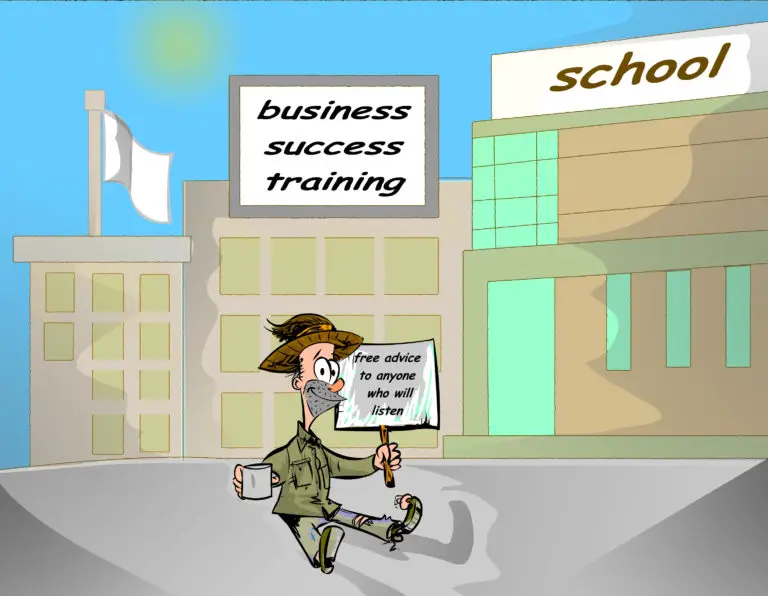Probation Officers: Unsung Heroes of Justice (How to become a Probation Officer)
Discover the fascinating world of probation officers. Learn about their crucial role, daily challenges, and the quirky side of the job. Keep reading for insider tips and real stories!
Walking the Tightrope: A Day in the Life of a Probation Officer
Picture this: You’re part social worker, part law enforcer, and occasionally, part detective. Welcome to the world of a probation officer!
These unsung heroes of the justice system play a crucial role in rehabilitating law offenders and keeping communities safe. But what exactly does a probation officer do?
They prepare reports for court hearings and collaborate with various stakeholders in the criminal justice system. Buckle up, because we’re about to take a wild ride through the ins and outs of this challenging yet rewarding career!
“Being a probation officer is like being a tightrope walker. You’re constantly balancing between helping people and enforcing the law.” – Sarah Johnson, Probation Officer with 15 years of experience
The Probation Officer’s Toolbox: More Than Just Ankle Monitors and Substance Abuse Treatment
Probation officers are the Swiss Army knives of the criminal justice system, equipped with a diverse set of tools to handle the complexities of offender rehabilitation and community supervision. Let’s dive deeper into their arsenal:
- Supervision Techniques:
- Regular check-ins: Face-to-face meetings to assess progress and address concerns.
- Home visits: Unannounced drop-ins to verify living conditions and compliance.
- Electronic monitoring: GPS ankle bracelets for high-risk offenders.
- Drug testing: Random screenings to ensure sobriety.
- Employment verification: Checking in with employers to confirm steady work.
- Counseling and Intervention:
- Motivational interviewing: A technique to encourage positive behavioral change.
- Cognitive behavioral therapy: Addressing thought patterns that lead to criminal behavior.
- Crisis intervention: De-escalating situations that could lead to probation violations.
- Substance abuse treatment: Connecting probationers with addiction recovery resources and administering drug tests to ensure compliance.
- Mental health support: Identifying and addressing underlying psychological issues.
- Correctional treatment: Services provided by probation officers to develop rehabilitation plans for offenders, both in custody and on probation or parole.
- Legal and Administrative Tools:
- Risk assessment instruments: Evaluating the likelihood of reoffending.
- Case management software: Tracking probationer progress and maintaining detailed records.
- Court order enforcement: Ensuring compliance with judge-mandated conditions.
- Violation reports: Documenting infractions for court review.
- Sentencing recommendations: Providing input on appropriate consequences for violations.
- Community Resources:
- Job training programs: Partnering with local organizations to improve employment prospects.
- Education resources: Connecting probationers with GED programs or higher education opportunities.
- Housing assistance: Helping secure stable living situations.
- Family support services: Addressing domestic issues that may contribute to criminal behavior.
- Cultural competence training: Understanding diverse backgrounds to provide more effective supervision.
- Social service agencies: Collaborating with social service agencies to provide resources and support for individuals on probation.
- Technological Aids:
- Remote reporting apps: Allowing low-risk offenders to check in virtually.
- Breathalyzer devices: Monitoring alcohol consumption for DUI offenders.
- Social media monitoring: Checking online activity for potential probation violations.
- Video conferencing: Conducting virtual meetings when in-person isn’t possible.
- Data analytics: Using predictive models to identify high-risk behaviors.
By leveraging this comprehensive toolbox, probation officers can tailor their approach to each individual case, balancing rehabilitation with public safety and working towards reduced recidivism rates.
From Classroom to Courtroom: Becoming a Probation Officer
Embarking on a career as a probation officer requires a unique blend of education, training, and personal qualities. Let’s break down the journey:
- Pass a comprehensive background check (including criminal background check and credit history).
Educational Requirements
To become a probation officer, a bachelor’s degree in criminal justice, social work, or a related field is typically required. Some positions may require a master’s degree or additional certifications.
Education and employment stipulations are often part of rehabilitation plans for offenders, emphasizing their importance in the conditional release process and recommendations made by probation officers regarding an offender’s rehabilitation and reintegration into society.
Educational Requirements: Understanding the Criminal Justice System
- Bachelor’s degree: Typically in criminal justice, social work, psychology, or a related field.
- Some agencies may accept degrees in other areas if supplemented with relevant experience.
- A master’s degree can be advantageous for career advancement and specialization.
Essential Skills:
- Strong communication: Both written and verbal, to interact effectively with probationers and stakeholders.
- Emotional intelligence: To navigate complex interpersonal situations and maintain professional boundaries.
- Problem-solving: To address unexpected challenges and develop innovative intervention strategies.
- Cultural competence: To work effectively with diverse populations.
- Stress management: To handle the emotional toll of the job and prevent burnout.
Physical and Background Requirements: Including Criminal Background Check
- Pass a comprehensive background check (including criminal record and credit history).
- Complete a physical fitness test (requirements vary by agency).
- Drug screening and psychological evaluation.
- Valid driver’s license and clean driving record.
How to Become a Probation Officer: Step-by-Step
- Earn your bachelor’s degree in a relevant field.
- Gain experience through internships or related work (e.g., social services, law enforcement).
- Research specific requirements for your state or desired agency.
- Apply for open positions (federal, state, or county level).
- Pass the initial screening (application review and preliminary interviews).
- Complete the background check and physical requirements.
- Attend and graduate from the agency’s training academy (usually 4-8 weeks).
- Complete a probationary period (typically 6-12 months) under supervision.
- Pursue ongoing training and professional development opportunities.
Helpful Resources and Training Information:
- American Probation and Parole Association (APPA): https://www.appa-net.org/
- National Institute of Corrections: https://nicic.gov/
- Federal Probation and Pretrial Officers Association: https://fppoa.org/
- State-specific probation officer associations (e.g., California Association of Probation Services Officers)
- Local community colleges and universities offering criminal justice programs
Remember, requirements can vary by state and agency, so always check with your local probation department for the most up-to-date information on becoming a probation officer in your area.
“The training is intense, but nothing truly prepares you for the real-world challenges. Every day is a new adventure.” – Mike Torres, Probation Officer Trainer
The Good, The Bad, and The Bizarre: Tales from Probation
Probation officers have seen it all. Here are some true stories that showcase the wild side of the job:
The Case of the Moonwalking Violator
Officer Lisa Chen recalls, “I once had a probationer who, when confronted about a violation, started moonwalking backwards out of my office. I couldn’t help but laugh, even as I was calling for backup!”
The Great Urine Switcheroo
“A probationer tried to pass off Mountain Dew as a urine sample,” chuckles Officer James Brown. “He claimed he was just ‘really well hydrated.’ Nice try, buddy!”
The Polygraph Puppy Predicament
Officer Sarah Johnson shares, “During a polygraph test, a probationer’s emotional support chihuahua kept barking at crucial moments, throwing off the readings. We had to reschedule the whole thing!”
Probation Officer Joke: Q: Why did the probation officer bring a ladder to work? A: To keep an eye on those higher-risk offenders!
Shocking Stats: The Probation Officer Shuffle
- 🦸♂️ There are over 90,000 probation officers in the United States
- 📊 The average caseload for a probation officer is 120 cases
- 💼 Probation officers have a 10% higher job satisfaction rate than the national average
- 🏃♀️ Probation officers walk an average of 3 miles per day on the job
- 🧠 84% of probation officers report that strong people skills are more important than physical strength in their daily work
FAQ: Things You Wanted to Know About Probation Officers
- Q:Do probation officers carry guns? A: It depends on the agency. Some do, some don’t. But all carry a mean clipboard!
- Q: What’s the difference between a probation officer and a parole officer? A: Probation officers work with offenders who are sentenced to probation instead of jail time. Parole officers supervise those released from prison early.
- Q: Can probation officers arrest their clients? A: Yes, if the probationer violates the terms of their probation. It’s like having a get-out-of-jail card… in reverse!
- Q: What’s the most challenging part of the job? A: Balancing rehabilitation with public safety. It’s like being a tightrope walker… without a net!
- Q: Do probation officers work 9-to-5? A: Ha! Good one. The job often involves evening and weekend work. Crime doesn’t punch a time clock!
- Q: What is the role of correctional treatment specialists in the criminal justice system? A: Correctional treatment specialists assist in rehabilitating law offenders either in custody or on probation/parole. They play a crucial role in community corrections and rehabilitation programs, focusing on the offenders’ reintegration into society. Their job includes assessing offenders, creating rehabilitation plans, and monitoring progress. They also provide valuable data on median wages, growth projections, and educational requirements for the field.
- Q: What do pretrial services officers do in assessing defendants’ backgrounds before trial? A: Pretrial services officers investigate defendants’ backgrounds to determine if they can safely return to the community before trial. They make recommendations to judges regarding sentencing and bond amounts. Once defendants are released, these officers supervise their compliance with release conditions and ensure they appear at trial.
Survival Tips: How to Thrive as a Probation Officer
Navigating the challenging world of probation requires more than just book smarts. Here are expanded tips to help you not just survive, but thrive in this demanding career:
- Develop a thick skin (but keep your heart soft):
- Learn to handle criticism and difficult interactions without taking them personally.
- Practice emotional resilience techniques, such as mindfulness and positive self-talk.
- Remember that a tough exterior doesn’t mean losing empathy – balance is key.
- Master the art of active listening:
- Focus on understanding, not just hearing, what probationers are saying.
- Use reflective listening techniques to ensure clear communication.
- Pay attention to non-verbal cues that might reveal underlying issues.
- Stay organized (your sanity depends on it!):
- Develop a robust case management system that works for you.
- Use technology to streamline paperwork and reporting processes.
- Prioritize tasks effectively to manage high caseloads.
- Build a support network of colleagues:
- Participate in peer support groups or mentoring programs.
- Engage in regular debriefing sessions with trusted coworkers.
- Don’t hesitate to seek guidance from more experienced officers.
- Practice self-care (stress management is key):
- Establish clear boundaries between work and personal life.
- Engage in regular exercise and maintain a healthy diet.
- Pursue hobbies and interests outside of work to maintain balance.
- Continuous learning and adaptability:
- Stay updated on best practices in probation and rehabilitation.
- Attend workshops and conferences to expand your skill set.
- Be open to new approaches and evidence-based practices in the field.
- Develop strong relationships with community partners:
- Cultivate connections with local service providers and resources.
- Build rapport with law enforcement agencies for effective collaboration.
- Engage with community leaders to better understand local challenges.
- Maintain a sense of humor:
- Find appropriate ways to lighten the mood in stressful situations.
- Share funny (but professional) anecdotes with colleagues to build camaraderie.
- Remember that laughter can be a powerful tool for connection and stress relief.
- Practice cultural competence:
- Educate yourself about the diverse populations you serve.
- Be aware of your own biases and work to overcome them.
- Adapt your communication style to effectively reach different individuals.
- Focus on small wins:
- Celebrate the progress of your probationers, no matter how small.
- Recognize that change is a process, and every step forward is significant.
- Reflect on your positive impact to maintain motivation and job satisfaction.
By incorporating these strategies into your daily practice, you’ll be better equipped to handle the challenges of probation work while maintaining your well-being and effectiveness.
Remember, taking care of yourself is not just a personal benefit – it’s essential for providing the best possible support to your probationers and contributing to a safer community.
The Bottom Line: More Than Just a Job
Being a probation officer is not for the faint of heart. It’s a challenging career that requires a unique blend of toughness and compassion. But for those who are up to the task, it offers a chance to make a real difference in people’s lives and contribute to safer communities.
So, the next time you see a probation officer, give them a nod of appreciation (if possible). They’re out there every day, walking that fine line between enforcer and mentor, helping to rebuild lives one case at a time.
And remember, if you’re considering this career path, pack your sense of humor along with your badge. In the world of probation, sometimes laughter is the best tool for breaking down barriers and building bridges to a better future.






